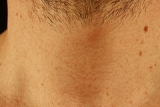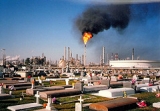Cut Your Cancer Risk
 People Vulnerable To Cancer:
People Vulnerable To Cancer:
Age is a primary risk factor for cancer with about 77% of all cancers being diagnosed in people age 55 and older. As of 2004, there were approximately 10.8 million men and women living with a history of cancer. Approximately one of out every two men and one out of every three women come in for cancer in their lifetime. Some cancers such as childhood leukemia, neuroblastoma, Wilms tumor and retinoblastoma are most common in children. However, most cancer become a commonplace as we grow older. The association between age and an increased risk of cancer is not well understood. Certain changes in the cell causes cancer but no one can explain the reasons for the process. There is no definite explanation why cancer occurs in the older generation. Your risk for cancer depends on a number of factors. First of all, cancer can be hereditary, your family medical history, your environment and the lifestyle choices you make are all connected to see if you are at risk. It can come from parent to child, in any form of cancer.
 1. Tobacco: Smoking damages nearly every organ of the body. it is linked to at least 15 types of cancers and causes 30% of cancer deaths. Yet one in every five Americans light up. Cigarette smoking is dangerous and addictive. Smoking is the most preventable cause of premature death in our society. It is not only dangerous for the person who smokes but second hand smoke kills too, that means the person who inhales smoke is harmed in the process too. When non-smokers are exposed to secondhand smoke it is known as passive smoking. Non-smokers take in nicotine and other toxic chemicals just like smokers do.Chewing tobacco and snuff are highly addictive. Cancer is not the only concern for women who smoke. Smoking causes infertility and problems during pregnancy in women.
1. Tobacco: Smoking damages nearly every organ of the body. it is linked to at least 15 types of cancers and causes 30% of cancer deaths. Yet one in every five Americans light up. Cigarette smoking is dangerous and addictive. Smoking is the most preventable cause of premature death in our society. It is not only dangerous for the person who smokes but second hand smoke kills too, that means the person who inhales smoke is harmed in the process too. When non-smokers are exposed to secondhand smoke it is known as passive smoking. Non-smokers take in nicotine and other toxic chemicals just like smokers do.Chewing tobacco and snuff are highly addictive. Cancer is not the only concern for women who smoke. Smoking causes infertility and problems during pregnancy in women.
 2. Occupational And Environmental Cancer Risks: This can include smoking, diet, sun exposure and infectious diseases, as well as chemicals and radiation in our homes and workplaces. Skin concern is an occupational concern for people who work under the sun. There is enough evidence that sunlight causes skin cancer. Infection with certain viruses, bacteria and parasites have been recognized as risk factors for several types of cancers. In developing countries, infections can account for as much as 20% of all cancers. Some infections may cause long-term inflammation, suppress a person’s immune system, or directly affect a cell’s DNA. These increase the risks of cancer. Exposure to diesel exhaust is widespread in the modern world. Trucks, trains, buses, construction and farm equipment, ships, generators and some cars have diesel engines. Exhaust from these bring bring a mixture of gases and soot to roadways, houses, farms, cities and workplaces.
2. Occupational And Environmental Cancer Risks: This can include smoking, diet, sun exposure and infectious diseases, as well as chemicals and radiation in our homes and workplaces. Skin concern is an occupational concern for people who work under the sun. There is enough evidence that sunlight causes skin cancer. Infection with certain viruses, bacteria and parasites have been recognized as risk factors for several types of cancers. In developing countries, infections can account for as much as 20% of all cancers. Some infections may cause long-term inflammation, suppress a person’s immune system, or directly affect a cell’s DNA. These increase the risks of cancer. Exposure to diesel exhaust is widespread in the modern world. Trucks, trains, buses, construction and farm equipment, ships, generators and some cars have diesel engines. Exhaust from these bring bring a mixture of gases and soot to roadways, houses, farms, cities and workplaces.  Health concerns regarding diesel exhaust not only relate to cancer, but also to lung and heart diseases. Organs differ in their sensitivity to the effects of radiation. The thyroid gland and bone marrow are most sensitive to radiation, while the kidney, bladder, and ovary seem to be least affected. Some forms of leukemia, a type of cancer that arises in the bone marrow, appear to be the most common radiation-induced cancers.
Health concerns regarding diesel exhaust not only relate to cancer, but also to lung and heart diseases. Organs differ in their sensitivity to the effects of radiation. The thyroid gland and bone marrow are most sensitive to radiation, while the kidney, bladder, and ovary seem to be least affected. Some forms of leukemia, a type of cancer that arises in the bone marrow, appear to be the most common radiation-induced cancers.
3. Chemicals: Some chemicals like benzene, arsenic, tetrachlorethylene, formaldehyde, lead and asbestos are factors that can make you prone to cancer.